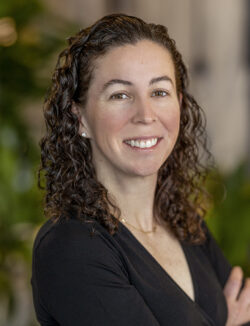Sponsored: Rising Medical Solutions
Surgical Shopping: A New Approach Adds Predictability, Creates Better Outcomes
Historically, when someone needed surgery, they went to the hospital. There was no other option, it’s just the way it was. Fortunately, free market choice is now creeping into healthcare, and it’s becoming part of the buying decision just like with every other purchase we make in life.
“We buy a car, it’s a huge purchase. We don’t just blindly go to the first car dealership we run across and buy whatever the sales guy tells us to. We assess the choices on the market, weigh price, quality, convenience, reliability, efficiency…and compare our research with other dealerships in our vicinity,” said Robert Evans, National Director of Network Solutions at Rising Medical Solutions, a medical cost containment and care management company. “Why should purchasing a surgery be any different?”
Unfortunately, yesterday’s model for surgical care “shopping” not only limits choice for the patient, it also limits choice for the payer and provider.
From the patient point-of-view, the main questions are: Do I really need the surgery and, if so, will the procedure be a success? Payers not only want a necessary surgery to succeed but also want to know how much it will cost and if the right provider is delivering care. Providers want to know that they’ll be paid promptly and precisely how much they’ll receive.
“There are dynamic forces within healthcare delivery, but we can do things differently by moving from a retrospective piecemeal model to a prospective fully-integrated approach. The idea is to work with certain quality providers so you globally pre-negotiate an arrangement before a claim happens. That way, you boost predictability across the board: for the patient, the payer and the provider.”
— Robert Evans, National Director of Network Solutions, Rising Medical Solutions
The clear need for a better surgical care model prompted Rising Medical Solutions (Rising) to develop its Surgical Care Program (SCP). Rising’s SCP directs care to quality surgeons and ASCs in select states. By pre-negotiating the most common ambulatory surgical procedures at bundled case rates, Rising and its partners are able to achieve a predictable, fair rate for payers.
“Payers are looking for ways to control costs, reserve appropriately, expedite processes and most importantly, benefit our injured employee by connecting them with a quality provider,” said Karin Holland, Director of Workers’ Compensation, FirstGroup America.
Evans points to key data that shows how using ambulatory surgery centers (ASCs) is a more effective healthcare delivery strategy for claims requiring certain surgical procedures. For example:
- Surgeries performed in ASCs are 41 percent less expensive than hospital outpatient rates, according to an ASC Association analysis of 2009 Medicare ASC payment rates.
- One out of every 20 hospital patients will contract an infection while receiving treatment for another condition, according to the Centers for Disease Control and Prevention. Whereas, just over one out of every 1000 ASC patients contracts a post-surgical infection reports the ASC Association Outcomes Monitoring Project.
- ASC’s offer shorter wait times, easier scheduling and more convenient locations, according to a 2010 MedPAC Report to Congress, Medicare Payment Policy.
“There are dynamic forces within healthcare delivery, but we can do things differently by moving from a retrospective piecemeal model to a prospective fully-integrated approach,” Evans said. “The idea is to work with certain quality providers so you globally pre-negotiate an arrangement before a claim happens. That way, you boost predictability across the board: for the patient, the payer and the provider.”
Jeanetta Lawrence, COO of Jewett Orthopaedic Clinic, stated that specialists often experience a collection period ranging from 60 to 90 days. Lawrence spoke to the importance of adding predictability to the equation, “Predictable reimbursement for services rendered gives our practice an opportunity to budget accordingly and ultimately offer even better service to those seeking care.” Lawrence added, “Timely reimbursement lowers our overhead because we are not spending energy on seeking payments.”
“We buy a car, it’s a huge purchase. We don’t just blindly go to the first car dealership we run across and buy whatever the sales guy tells us to. We assess the choices on the market, weigh price, quality, convenience, reliability, efficiency…and compare our research with other dealerships in our vicinity,” said Robert Evans.
Apart from lower rates, better reserving accuracy and improved outcomes, the need for clinical care coordination is also addressed with Rising’s SCP. “Patients and payers need much more than a scheduling service to facilitate efficient provider selection,” Evans said. “They need clinical resources to make sure the procedure is medically necessary and an understanding that engaging an experienced, quality surgeon may result in avoiding a surgery altogether.”
Options are finally on the table in the surgical world. Just like shopping for a car, we’re looking for a hassle-free experience, without complications, at a good value. “Why would we want anything less for your most precious possession, your health,” asked Evans. It’s a rhetorical question that really begs only one answer: we, as patients and as payers, deserve the same shopping experience in healthcare as we do in every other area of our lives. It’s that simple notion of free market competition that will create optimal outcomes and satisfaction.
Robert Evans and his SCP team can be reached at [email protected]. For more information about Rising Medical Solutions’ Surgical Care Program, please visit risingms.com.











